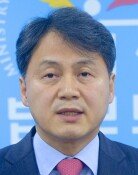Different Traditional Year-End Holidays
Different Traditional Year-End Holidays
Posted December. 30, 2005 03:21,
Every December, Jewish people enjoy the eight-day religious festival of Hanukkah. The holiday celebrates Israels recapture and dedication to God of its sacred hall that was taken away by foreign invasion around 165 B.C.. It is also called Israels day of dedication.
Where is the place in Seoul where one can feel the authentic ambience of Hanukkah the strongest? Without doubt, it is the residence of Mr. and Mrs. Yigal Caspi, the Israeli ambassador to Korea. On December 27 at the Israeli embassy residence in Itaewon, Yongsan-gu, Seoul, some 70 Jewish and non-Jewish congratulators gathered to enjoy the Hanukkah holidays.
Hanukkah continues for eight days starting from Kislev 25 of the Jewish calendar. The holiday usually begins in early December of the solar calendar, but this year, it started on December 25, later than previous years.
Rather than holding large-scale events, Jewish people gather with their families, dine together, and exchange gifts during the Hanukkah holidays. The most important ritual is a candle-lighting ceremony called Hanukkiyah, explained Caspi.
A third candle was lit at the gathering, which was held on the third day of the Hanukkah holidays. One more candle is lit each day, with a total of eight candles being lit on the last day. In the candlelight, participants had a great time tasting traditional Hanukkah dishes like potato pancakes (latkas, livivot) and doughnuts (soofganiot).
The most impressive guests of the meeting were ambassadors from Muslim countries such as Egypt and Morocco. The Israeli ambassador and I are such good friends, even though our two countries diplomatic relations are strained. Whether it be Islam or Judaism, all religions are quite the same in that they preach peace and reconciliation, said Mohammed Reda El Taipy, the Egyptian ambassador to Korea.
The gathering was also attended by a large number of ambassadors of Jewish origin. Alexander Vershbow, the U.S. ambassador to Korea who arrived there late, jokingly said, I am late because I brought a large family here. Vershbow was accompanied by the biggest congratulatory delegation among the participants, consisting of his wife Lisa, two sons Gregory and Benjamin, and Sherry, Benjamins girlfriend. Despite my busy schedule as a diplomat, I have tried to follow Jewish customs. I held the Bat Mitzvah ceremonies in the years when my two sons turned 13, said Vershbow.
The Jewish are not the only ones that hold feasts around Christmas; the United Kingdom and other Commonwealth countries celebrate the Boxing Day (December 26), the day after Christmas.
Boxing Day is not a festival with religious background. The name was derived from gift boxes that people gave to sweepers, newspaper deliverymen, postmen and underprivileged neighbors to appreciate their efforts throughout the year. The practice started during the reign of Queen Victoria in the mid-19th century and can be seen in the United Kingdom, Canada, Australia and New Zealand.
Boxing Day is officially designated as holiday, so all public agencies are closed on that day. The Korean embassies to those countries were also closed on December 26.
Some people donate gifts to relief organizations in commemoration of Boxing Day; but to most people of the United Kingdom and other Commonwealth countries, however, the day is more famous as a shopping holiday when they can purchase on-sale products immediately after Christmas.
The Russian Embassy in Jeong-dong, Jung-gu, Seoul, is celebrating the New Year in a calm manner.
In Russia, the New Year is one of the longest holidays. Official holidays there will continue until January 9, 2006. Given such a schedule in its home country, the Russian Embassy will open as late as January 10. Most Russian diplomats are planning to visit home or travel to the third country during the period. In many cases, family members go on a vacation even though the diplomats themselves stay in Seoul. There are bound to be only few people in the Embassy and the employee apartment building.
Russian Ambassador to Korea Gleb Ivashentsov, who will be celebrating his first New Year in Korea since his appointment in June, is said to be staying in Korea during the holidays. [The ambassador] will quietly enjoy the New Years holidays with his family, said one embassy official.
Unlike last year, the Russian Embassy does not have plans to hold an official New Years Eve party this year. However, some diplomats family members are preparing for a simple New Years party on the night of December 31 a la Russia. They will decorate a Russian-style New Years tree called a yolka, pop champagne, and share celebratory greetings.
January 7 is Christmas for the Russian Orthodox Church. On the night of January 6, which is their Christmas Eve, most employees and their families will attend the service celebrating Christmas held in the St. Maxim Church, an orthodox church located in Ahyun 1-dong, Mapo-gu, Seoul.
Mi-Kyung Jung Ki-Hyun Kim mickey@donga.com kimkihy@donga.com
Headline News
- Med professors announce intention to leave hospitals starting Thursday
- Bridge honoring Sgt. Moon Jae-sik unveiled in Pennsylvania
- Chief of Staff Chung tells presidential secretaries to stay away from politics
- US FTC bans noncompete agreements
- N. Korea launches cyberattacks on S. Korea's defense companies







